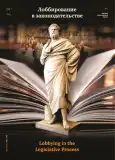Participation of the Public Prosecutor in the Interrogation of the Expert in the Judicial Investigation
- Authors: Isaenko V.N.1
-
Affiliations:
- State University of Education
- Issue: Vol 3, No 2 (2024)
- Pages: 43-50
- Section: Criminal law
- URL: https://journals.eco-vector.com/2782-7372/article/view/633683
- DOI: https://doi.org/10.33693/2782-7372-2024-3-2-43-50
- EDN: https://elibrary.ru/FUNXRH
- ID: 633683
Cite item
Abstract
The article analyzes the situation, arising in connection with the need for the prosecutor – public prosecutor to interrogate an expert in a judicial investigation to clarify or supplement the conclusion given by him. These situations may be due to the probable conclusion of an expert, the presence of a large number of special terms in the conclusion, the expert’s use of a new research methodology and other reasons. Petitions for the interrogation of an expert are mostly submitted by the defendants’ defenders. In refutation of the conclusions of experts obtained in pre-trial proceedings, they often present the conclusions (opinions) of specialists, petitions are made for their interrogation. However, in connection with that, that the conclusions and testimonies of specialists in the vast majority of cases contain an assessment of the expert’s opinion, which is exclusively within the jurisdiction of the court, they are not taken into account by the courts when making a decision on the case, which is reflected in the materials of the trial. The possibility of questioning an expert in a judicial investigation is also used by prosecutors – state prosecutors, who are obliged to take a balanced approach to the application of petitions for this, and carefully consider the list beforehand, the wording, the order of the questions they ask. However, more often, prosecutors have to object to the petitions of defenders to recognize the evidence obtained in pre-trial proceedings as inadmissible, to attach conclusions (opinions) to the case and to interrogate in court specialists involved by defenders who question the conclusions of experts, to appoint repeated examinations, etc. Prosecutors. participating in possible subsequent sessions of the courts of appeal and cassation in this case. In preparing for them, attention will be paid to the content of the questions asked to the expert by the parties and the answers to them, to the validity of the mentioned defense petitions and objections to them by the prosecutor, whether they were taken into account or rejected by the court, and if they are justified, they can be used to defend arguments as appropriate representations of prosecutors, so are the complaints of other participants in the process, objections, as well as to that, has the court taken them into account or rejected them, and if they are justified. Therefore, when reviewing the minutes of the court session, the prosecutor, the person who supported the state prosecution is obliged to find out, how fully does it reflect the content of the expert’s interrogation, the questions asked to him by the parties and the answers to them, the content of the defense’s petitions and the prosecutor’s objections to them. The prosecutor – public prosecutor is obliged to make maximum use of the possibilities of studying expert opinions in the judicial investigation in order to assist the court in making a lawful decision. a reasonable and fair sentence. The article also expresses an opinion on some gaps in the norms of the criminal procedure law governing the appointment of an examination in court, as well as on the certain controversy of the position of the Plenum of the Supreme Court of the Russian Federation regarding one of the grounds for the appointment of a re-examination by the court.
Full Text
About the authors
Vyacheslav N. Isaenko
State University of Education
Author for correspondence.
Email: viach.isaencko2015@yandex.ru
Dr. Sci. (Law), Professor, Department of Criminal Procedure and Criminalistics
Russian Federation, Mytishchi, Moscow regionReferences
- Baev O.Ya. prosecutor as a subject of criminal prosecution: A scientific and practical guide. Moscow: Yurlitinform. 2006. Pp. 111–112.
- Buldygina N.I. Ivanov A.N. Kurokhtina E.S. Maintaining public prosecution: Legal, organizational and tactical aspects. An educational and practical guide. Moscow: Yurlitinform. 2012. Pp. 175–176.
- Grishina E.P. Theoretical and legal mechanism of the use of special knowledge in Russian criminal proceedings in the context of its purpose and adversarial principles. Monograph. Moscow: Yurlitinform. 2016. Pp. 211–216.
- Korenevsky Yu.V. Criminalistics for judicial investigation. Moscow: JSC “Centryurinfor”, 2001. Pp. 173–175.
- Orlov Yu.K. Modern problems of proving and using special knowledge in criminal proceedings. A scientific and practical guide. Moscow: Prospect. 2017. Pp. 180–181.
- Pavlova E.V. Investigation and evaluation by the prosecutor of the conclusions and testimony of experts in the trial of criminal cases: Dis. ... of Cand. Sci. (Law). Moscow, 2022. Pр. 124–127.
- Strogovich M.S. Criminal procedure: textbook for law institutes and faculties. Moscow: Legal Publishing House of the Ministry of Justice of the USSR. 1946. P. 408.
- Ulyanov V.G. State prosecution in Russian criminal proceedings: procedural and criminalistic aspects. Monograph. Moscow: OLMA-PRESS. 2002. Pp. 263–266.
Supplementary files











